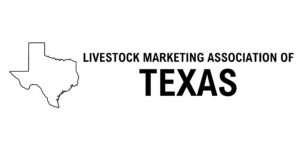 Livestock markets and dealers are in strong support of recent efforts to stop the spread of the New World Screwworm (NWS) into the U.S. NWS has been recently detected in remote farms with minimal cattle movement as far north as Oaxaca and Veracruz, about 700 miles away from the U.S. border.
Livestock markets and dealers are in strong support of recent efforts to stop the spread of the New World Screwworm (NWS) into the U.S. NWS has been recently detected in remote farms with minimal cattle movement as far north as Oaxaca and Veracruz, about 700 miles away from the U.S. border.
This week, the Strengthening Tactics to Obstruct the Population of Screwworms (STOP Screwworms) Act was introduced in both the House and Senate to authorize funds for and direct the U.S. Department of Agriculture (USDA) to begin construction on a new sterile fly production facility to combat the growing NWS outbreak.
“We are grateful to U.S. Senators John Cornyn (R-TX), Ted Cruz (R-TX), Ben Ray Luján (D-NM), Cindy Hyde-Smith (R-MS), Martin Heinrich (D-NM), and U.S. Representative Tony Gonzales (R-TX) for introducing this legislation,” said Bryan Forester, Chair of the American Livestock Markets and Dealers Association (ALMDA). Forester noted, “The sterile fly production facility and related appropriations authorized by this legislation is critical to protect the U.S. livestock industry.”
 Livestock marketers and dealers also support action taken by Secretary of Agriculture Brooke Rollins on Sunday to temporarily suspend live animal imports at ports of entry along the Mexican border in response to the emerging threat of NWS.
Livestock marketers and dealers also support action taken by Secretary of Agriculture Brooke Rollins on Sunday to temporarily suspend live animal imports at ports of entry along the Mexican border in response to the emerging threat of NWS.
“While we acknowledge the temporary market challenges this decision may create, we stand behind the efforts of USDA and state animal health officials to safeguard domestic livestock production,” said Kenny Mingus, President of the Livestock Marketing Association of Texas (LMAT). Mingus added, “If halting imports is necessary to protect the U.S. livestock industry, we fully support this action.”
ALMDA and LMAT represent the majority of Texas livestock markets and dealers which provide marketing channels for cattle, sheep, goats, horses, and other species which could be impacted by NWS. Both organizations have supported efforts to fund sterile fly production and work within state and national coalitions to educate others on NWS impacts and will continue to work closely with animal health officials for the health and security of the livestock industry.
